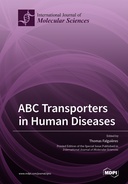Explore

ABC Transporters in Human Diseases
0 Ungluers have
Faved this Work
Login to Fave
Mammalian ATP-binding cassette (ABC) transporters constitute a superfamily of proteins involved in many essential cellular processes. Most of these transporters are transmembrane proteins and allow the active transport of solutes, small molecules, and lipids across biological membranes. On the one hand, some of these transporters are involved in drug resistance (also referred to as MDR or multidrug resistance), a process known to be a major brake in most anticancer treatments, and the medical challenge is thus to specifically inhibit their function. On the other hand, molecular defects in some of these ABC transporters are correlated with several rare human diseases, the most well-documented of which being cystic fibrosis, which is caused by genetic variations in ABCC7/CFTR (cystic fibrosis transmembrane conductance regulator). In the latter case, the goal is to rescue the function of the deficient transporters using various means, such as targeted pharmacotherapies and cell or gene therapy. The aim of this Special Issue, “ABC Transporters in Human Diseases”, is to present, through original articles and reviews, the state-of-the-art of our current knowledge about the role of ABC transporters in human diseases and the proposed therapeutic options based on studies ranging from cell and animal models to patients.
This book is included in DOAB.
Why read this book? Have your say.
You must be logged in to comment.
